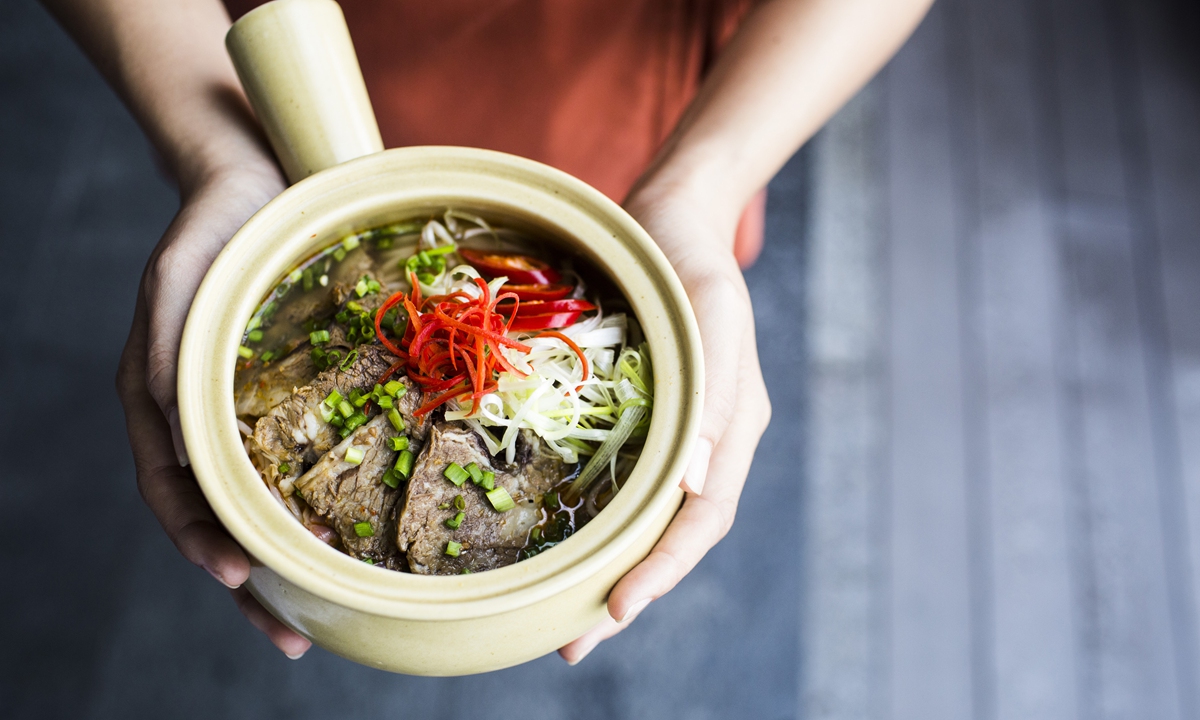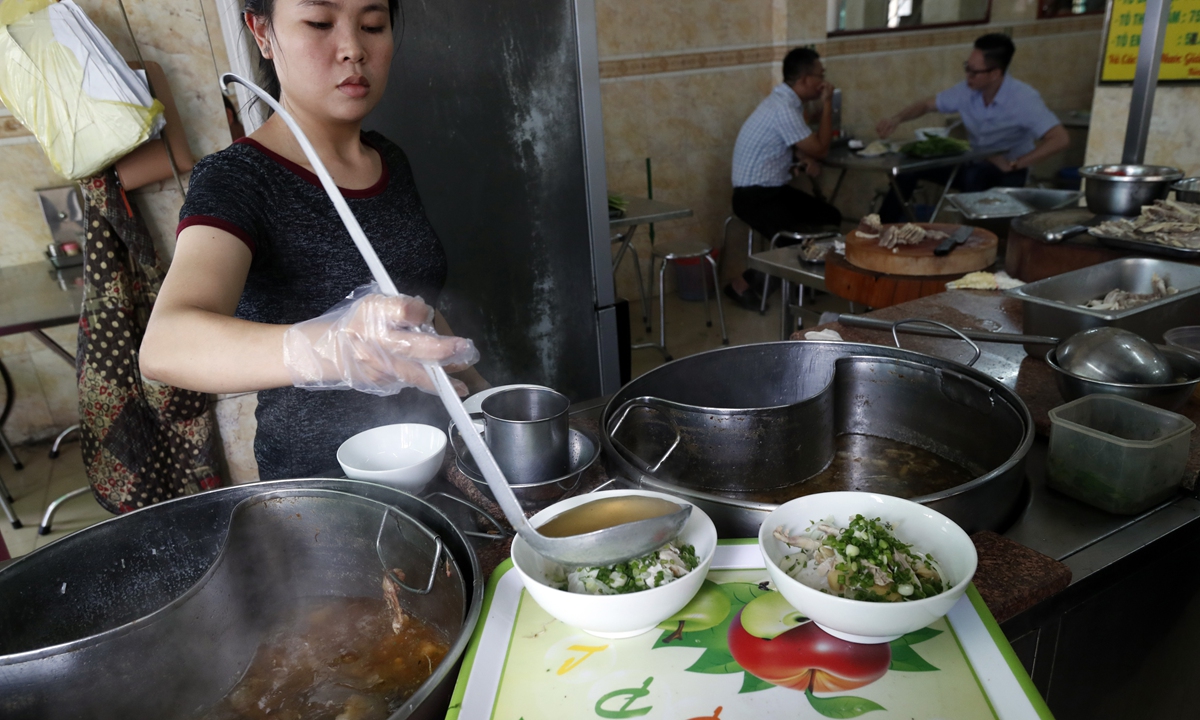Anxiety mounts over Vietnam’s food staples
Source: AFP Published: 2020/11/19 17:58:40

A bowl of Vietnamese rice noodles. Photo: AFP

A woman serves Vietnamese traditional pho noodle soup in a restaurant in Ho Chi Minh City, Vietnam. Photo: AFP
Vietnam's fragrant noodle soups and fresh spring rolls have won fans across the globe, but mounting food safety scandals on the country's streets are sparking a rising tide of anxiety among millennials about what they eat.
Tran Huong Lan, a 32-year-old accountant, spent two nights in the hospital the last time she ate bun cha, Hanoi's signature pork noodles gobbled up by former US president Barack Obama and late celebrity chef Anthony Bourdain on a visit four years ago.
"About two hours after lunch I started feeling unwell. I went home and I started vomiting," she told AFP.
Rushed to hospital by her husband, doctors told her there was only one explanation: food poisoning.
Lan didn't eat out for a month after her scare, and frequent high-profile food safety scandals have fed others' fears.
In July, 14 people were taken to the hospital in a severe condition after being poisoned by a vegan pate. Many experienced droopy eyelids and paralysed respiratory muscles.
As well as anxiety over hygiene standards, there is growing unease about high pesticide use for vegetables and herbs thrown in typical street food dishes such as fresh shrimp rolls and bun bo, dried noodles with beef.
Some 70 percent of 16 to 30-year-olds said food safety was their biggest concern - ranking the same as job security - when polled by the British Council in Vietnam in 2020.
Truong Quoc Tung, director of the Vietnam Plant Protection Association, recently said the problem was approaching "crisis proportions."
"Banned pesticides are being used, the environment is polluted and agricultural products are being sent back after being shipped abroad," he told state media.
Food safety problems cost Vietnam around $740 million per year in productivity, the World Bank says.
'Safe' food
But across the country, from lush countryside fields to tiny urban rooftop gardens, Vietnamese are doing what they can to ensure they eat safely.
Ngo Xuan Quyet, 26, used to sell pesticides for a living before switching to "safe" farming.
With the help of Rikolto, an NGO that promotes safe food policies, he is trying to ensure his lettuce, spring onions and herbs - grown with a strictly controlled dose of pesticides - make it into as many bowls of bun cha as possible.
"When I worked [at the pesticide company], I really got to know about the chemical substances in them," said Quyet, who studied agriculture at university.
"I learnt about the awful impact [of overuse]... and I started to want to grow safe vegetables,"
At the moment "we are targeting workplace canteens, school kitchens and supermarkets, but my goal is also to reach pregnant women, who very much need to eat quality food," he added.
Heavy metals found in soil or water used for agriculture in Vietnam may be a significant contributor to the incidence of some forms of cancer, the World Bank says, while heavy pesticide use may also have long-term impacts.
In southern provinces, between 38 and 70 percent of farmers used pesticides higher than the recommended level in 2014 - the latest figures available - according to the Ministry of Agriculture. The amount of pesticide used in Vietnam has remained relatively stable since then.
A ban on the import of herbicides containing glyphosate, classified as "probably carcinogenic" by the World Health Organization (WHO), will come into force in 2021 but it is unclear how rigorously it will be enforced.
Priced 10-20 percent higher than standard vegetables, Quyet's produce is on sale at two major supermarkets in Hanoi.
A growing proportion of the county's urban consumers are willing to pay the extra, according to the World Bank - while some are largely turning their backs on traditional street food stalls.
Rooftop farming
Phan Thi Lien, an officer worker in Saigon, increasingly sits down to a bowl of bun cha in a small restaurant rather than on the side of the road.
"I often come to restaurants as state officials will check on these places, so it is safer than street food [stalls]," she says while eating lunch at Baba, a diner which tries to recreate the street food experience - but with guaranteed traceability of food.
Many - and not just millennials - are also investing in their own personal food supply to ensure their health.
Le Thi Thanh Thuy, 69, grows lettuce, morning glory and a dozen other vegetables on her roof in western Hanoi.
"During the summer, the vegetables I grow on the roof are enough for my family," she said, explaining she spends up to two hours per day tending her crop.
"Sometimes the vegetables we buy at the market may look nice and fresh but we don't know their origin and what they used to grow them."
For Quyet, the dream is to guarantee quality produce everywhere from the local wet market to the cheap-as-chips food stall on the street corner.
But he admits, "I think it will take a very long time."
Newspaper headline: Growing fear
Posted in: FOOD,CULTURE & LEISURE